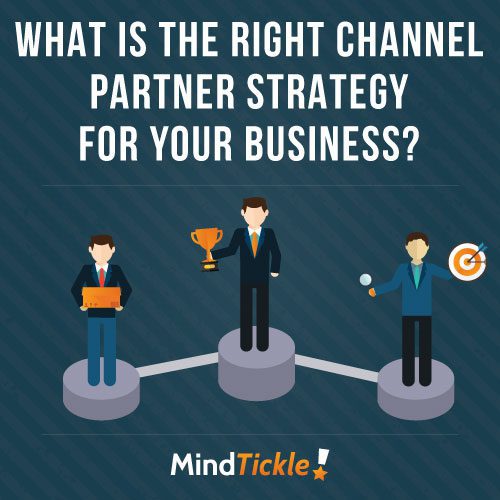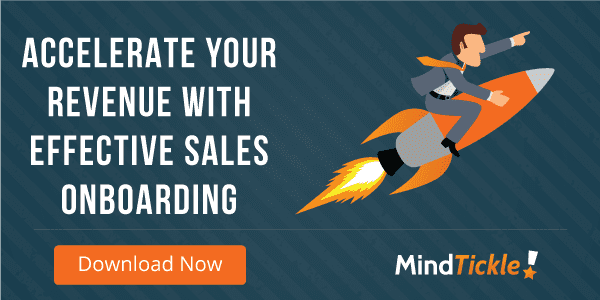 Recently, I found myself having similar conversations about how to manage channel partners with several customers from very different industries. The customers were in retail, technology, and hospitality respectively, but they each had similarities in the way they dealt with these partner relationships. The differences in their channel partner strategies were not due to their industries but rather were influenced by the stage of their business was at, or very specific market factors.
Recently, I found myself having similar conversations about how to manage channel partners with several customers from very different industries. The customers were in retail, technology, and hospitality respectively, but they each had similarities in the way they dealt with these partner relationships. The differences in their channel partner strategies were not due to their industries but rather were influenced by the stage of their business was at, or very specific market factors.
Despite their differences, there was one overriding principle to how they approached their channel partnerships; it’s a strategic investment for their business. While their reasoning may differ, this didn’t detract from the importance of these relationships to their sales efforts and bottom line. For example, FMCG producer Dabur Asia explained how channel partners were a critical player linking their retailers and customers. At the other spectrum, enterprise cloud platform producer Nutanix utilizes these arrangements to help them unlock doors in new geographies quickly.
Common threads also appeared in terms of their sales model and their enablement strategy, so much so, that I identified three broad channel partner strategies. Before I launch into these, it’s helpful to outline what I mean when talking about channel partnerships.
A channel partner specializes in various aspects of the sales process and undertakes this as a service on behalf of a business. Nutanix uses channel partners to help them scale quickly by undertaking just lead generation in some geographies, while they use their own sales engineer to conduct demos. But in new locations where they have no sales team, the channel partners help them expand with minimal investment, by managing their entire sales process right through to closing. They also have premium partners who are able to unlock doors which they cannot directly.
Based on these recent customer discussions the three channel partner strategies I’ve identified are: Exclusive, Targeted and Global.
1. Exclusive channel partnership strategy
Best for when you have a point solution.
A friend of mine has a software startup that sells email encryption software to large enterprises. As large companies tend to purchase their product as part of a broader email security solution, their only go-to-market strategy is to use channel partners who have expert knowledge. They bundle several point offerings as part of an overall solution for the larger business problem. Businesses in this position prefer aligning themselves with channel partners who are SMEs in their field, who they can provide with exclusive access to their solution.
The key challenges in an exclusive channel partnership are to engage your channel partner reps. 

An effective partner enablement strategy includes a strong onboarding program that focuses in on helping them sell your solution.
As they’re an exclusive channel partner, there’s plenty of scope for you to tailor the program to take into account their business model and even integrate any other training they may have already undertaken. This will ensure your solution makes sense within their overall contingent and adds value to their sales goals. As your channel partner reps are already SMEs the onboarding program doesn’t need to be long or intensive. Providing them with enough information to enable them to have some early wins, will help get them on their way quickly.
2. Targeted channel partnership strategy
Best for when you’re just starting to test the waters with channel partners. Most companies I’ve seen already have a very successful sales track record and are leveraging channel partners to help them grow rapidly. It’s not about signing up everyone who could sell their solution, but rather about building strategic partnerships that will take them where they want to go.
One of our customers sells tea in India, and are leveraging a franchise model to grow their business exponentially. These franchises are essentially channel partners, who open shop fronts to sell their specialty teas.
To maintain their growth trajectory, they’ve found that they need to ensure the franchise reps can represent their business in the same way their in-house sales reps do.
Aligning their channel partners with their business values, customer service philosophy and product messaging is key to their success. Similarly, another customer in the tech industry is building on its $100m revenue base, as it prepares for an IPO in a couple of years. It’s facing the same issues, as its channel partner reps also need to be able to sing the same song as their in-house sales reps to be successful.
This is a high touch strategy, bringing on board only a few channel partners at a time. With only a few channel partners on board, ensuring their success early is critical to maximizing revenue.
The key challenges are being able to not only get your channel partner reps up to speed quickly but also ensure that they understand how to sell your solution effectively. Investing in and providing support to your channel partners early on can make all the difference to their success.
An effective partner enablement strategy includes not only onboarding your channel partner reps quickly, but also certifying them so that you have comfort in knowing they can sell your product or service effectively.
Our high-growth customers that have executed this strategy have actually made sure that their channel partner (or franchise) reps have actually passed their certification before they can go out and sell. While it may take a couple of months to get each new channel partner up to scratch, by putting in place a robust certification program they have found that the additional effort was worthwhile in the long-run.
3. Global channel partnership strategy
Best for businesses that are looking to expand across more than one geography, or even globally in a short time frame.
Depending on your business structure, you may have several different levels to your channel partnerships, some tackling only part of the sales process, while others may sell right through to close. For example, Nutanix, expanded globally in just 24 months by bringing on board channel partners in different countries. In some countries, their channel partners are the sole sales representatives for their product, responsible for the entire sales process. In other locations, they leverage channel partners to supply leads, while their own sales and account engineers conduct demos and close their deals.
The key challenge in this strategy is to keep your channel partner reps engaged with your solution, and up to date with any new information about your product or service. This may cover everything from marketing offers to success stories or even changes in your competitive environment.
An effective partner enablement strategy often has a tiered approach, as different channel partners may have different responsibilities. Nutanix has several tiers to its enablement strategy, as the onboarding and certification required for a channel partner who is charged with closing a deal are different to one who only handles lead generation. The former includes training on demos and objection handling, which would just be superfluous for the latter.
They’ve found it’s critical that their channel partner’s reps are ready to sell at all times. Just like their own in-house sales reps, they need the latest information to do their job effectively. From success stories to competitive insights, keeping them up to date not only builds on their knowledge base, and helps keep them engaged with their solution, ensuring it stays top of mind.
Regardless of which strategy you employ, your end game is to ensure that your channel partners achieve success. So once you have the right partners on board, enabling them to sell your solution is, of course, a priority. Next, I’ll take you through the four things I’ve discovered that can help your channel partners sell more.







